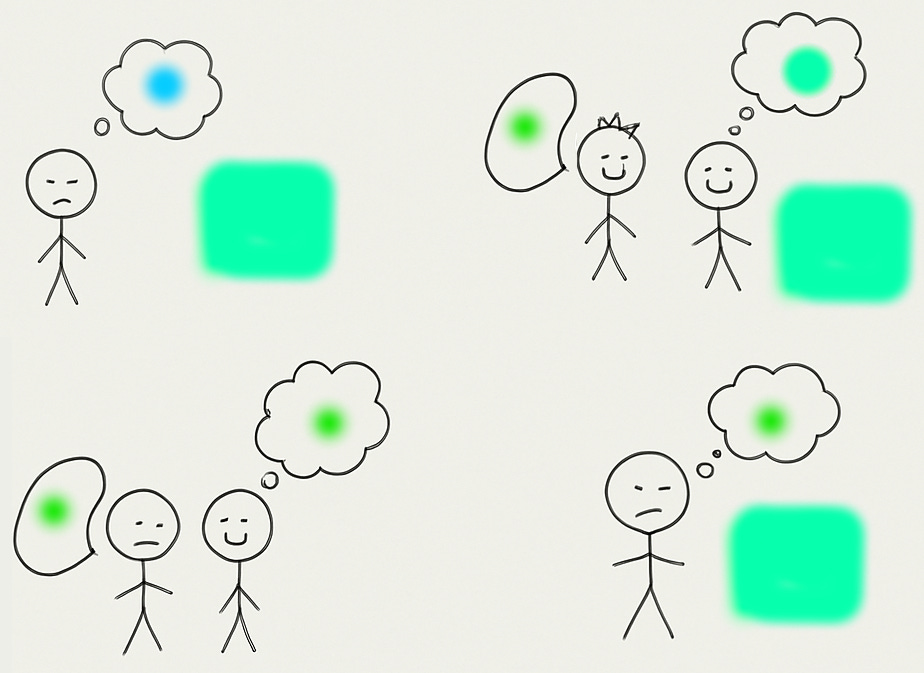Second generation literalism
What to call teal
Let's say you live in a society that lacks the word teal. A famous painting in your culture is called Yves Gross which looks like this
Your society calls this blue. One day, a maverick comes along and says "Gross's square is green"!
Everyone looks at it and marvels at this insight! Indeed, it was never blue, it was partly green. They understand it was not purely green, but in the cultural background of having called Gross's painting blue, saying "Gross's square is green" captures something deep. The folks who still resist, going around saying "no, it's blue" are missing the point.
The next generation grows up hearing it being called green. They don't necessarily know it used to be called blue, though. They think it means that people see the square as green. Eventually some new maverick comes along and writes "Come On, Obviously Gross's Square is not Green!"

★
I have been calling this phenomonon second-generation literalism.
One generation believes A, which is obviously not correct. Someones says the opposite of A is true and this generation sees it as a helpful correction and arrives at a happy middle ground, but the next generation grows up only hearing the correction and takes it literally. In vaguely Bayesian terms, if your prior is blue, calling teal green, will probably land you in the right ballpark. But if you make green your prior, you will be wrong.
★
Scott Alexander recently wrote Come On, Obviously The Purpose Of A System Is Not What It Does. Originally the phrase was coined in a more naïve age and served as a corrective by highlighting that systems were sometimes captured by interested parties, that you needed to dig beyond the official mission statement. Like the original behaviorism, it served a purpose and later became limiting. Nowadays, we are—if anything—too cynical about institutions.
Other example of second generation literalism include rejection of the Great Man Theory of History. The original Great Man Theory was almost cartoonishly simplistic: "Universal History, the history of what man has accomplished in this world, is at bottom the History of the Great Men who have worked here." However, we have now come to the opposite extreme where people deny that individuals ever matter.
One interesting example is Noah Smith's assertion that "China and the U.S. are very culturally similar, rather than representing distinct, alien poles of Eastern and Western civilization." It is an interesting corrective to the alternative view. As a green to the current consensus of blue, we should welcome it, but it is very obviously false.1
A couple of days ago, I had dinner at a very authentic Chinese eatery nearby. So authentic that we were the only table not speaking Mandarin. But the Mandarin-speakers were hardly speaking. The other tables consisted of groups of college-age groups who ate, mostly in silence, each individual looking down at their phones, actively texting on WeChat. As I said, it was very authentic and we could have been in any city in China, but not in the US.
Chinese-Americans in China talk about a large cultural shock, while Americans in Australia rarely do.


Nice post. I imediately thought about this: https://www.theguardian.com/science/2025/apr/18/scientists-claim-to-have-found-colour-no-one-has-seen-before
And then science advanced and we apply very new laser technique to identify a new color and call the square Olo.